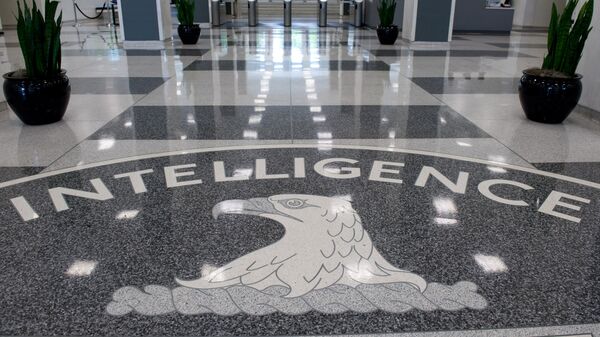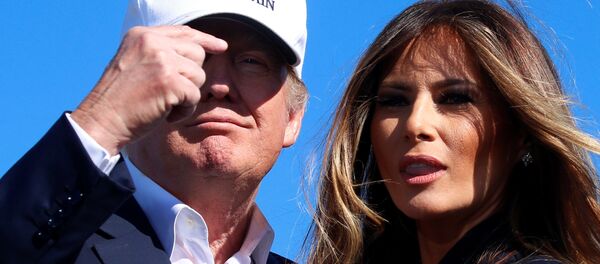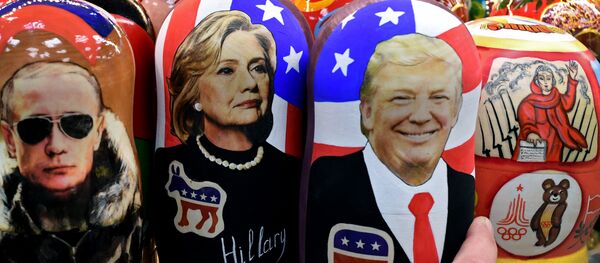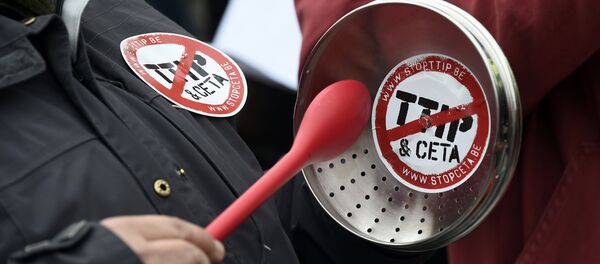Since Trump's unexpected victory on Tuesday, a number of statements have already been made by anonymous intelligence officials expressing their 'concern' about the prospects for their agencies under a Trump administration.
Such fears were made public just as Trump was expected to start receiving daily intelligence briefings. However, as the Russian online newspaper Vzglyad pointed out, Trump had begun familiarizing himself with such information going back to late August.
Accordingly, the paper suggested that this "burst of emotion" among intelligence officials is based more on concerns over the fate of their agencies and positions than it is on the nation's secrets being transferred to Trump's inexperienced hands. And this is particularly true of the CIA.
"The new administration seems set on not only replacing the director of the CIA, but conducting deep reform of the entire intelligence system, which could entail dismissals and a change in the style of the agency's work; and there's no guarantee that the changes will be to the CIA's advantage," Vzglyad contributor Evgeny Krutikov pointed out.
In fact, the journalist suggested, "it's clear that in for the near future, the work of the agency will face a state of disorientation and near-paralysis." This is connected in large part to Trump's dilemma about choosing a new CIA director.
At the moment, Trump ally and former New York Mayor Rudy Giuliani is rumored to be the only candidate for the post, which is significant, according to Vzglyad, because many of the other key administration posts have upwards of three or four candidates.
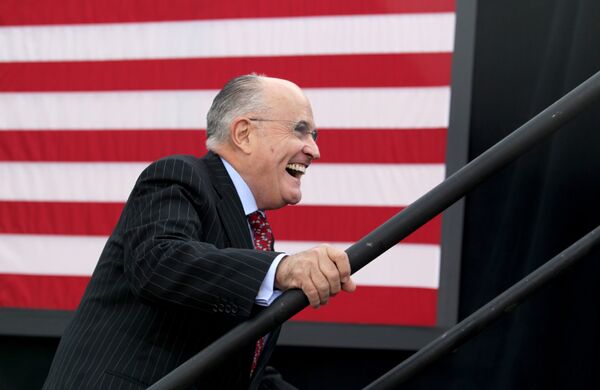
"Giuliani has a very particular experience with the intelligence community: his participation in the special committee to investigate the 9/11 terrorist attacks ended in scandal. Specifically, the mayor accused the CIA and the FBI of 'excessive secrecy'; the details remain a secret, but most likely came down to the CIA not wanting to disclose their sources with the civilian administration of the city of New York at the end of its term. Their refusal to cooperate provoked a wave of criticism, in which Giuliani himself was actively involved."
Accordingly, the paper suggested that Giuliani's appointment as CIA director would almost guarantee immediate conflict, since it would reopen old wounds. In any case, the fact that Giuliani is also rumored to be considered for the post of attorney general, where he has considerably more experience, leaves an open question about which post he will actually assume.
Having said that, the paper also noted that "if President-elect Trump wants to shake up the entire US intelligence system from top to bottom, Giuliani would make a perfect fit. He looks at the 'intelligence bureaucracy' – a whole layer of career administrators, with disdain, as a group which parasitically takes advantage of the closed nature of the intelligence system. Of course, in the short term, reform Giuliani-style would paralyze the agency, which already isn't in the best shape."
However, if the new director's tenure starts off with a series of mass layoffs and demotions, this could result in a whole army of disaffected former spies who could go on to sell US secrets to its enemies. "An aggrieved professional, like a veteran who has been passed up, is the most terrible weapon in the intelligence war," Vzglyad stressed.
Effectively, the paper suggested that whatever he ends up doing, Trump faces a paradox: "either he will have to whip the agency into submission, imposing new rules of the game, or guarantee himself an army of potential saboteurs in his backyard."
Vzglyad recalled that "formally, the CIA had declared its neutrality during the election campaign. At the same time, someone had [secretly] accompanied [Trump adviser] Carter Page during his trip to Moscow, and then handed the story to the American press. At the same time, the CIA has a very well-developed instinct for self-preservation, and sees in Trump an irrational threat to their well-being, which will be transmitted whoever he appoints."
"In this sense," the paper emphasized, "the second potential candidate for the post of CIA director, Lieutenant-General Michael Flynn, is no better" as far as established interests are concerned. Flynn worked in intelligence practically all his life, but in the military, topping off his career as director of the Defense Intelligence Agency, a post he held from 2012-2014. It doesn't help matters that the worlds of the CIA and US military intelligence have a history of conflict.
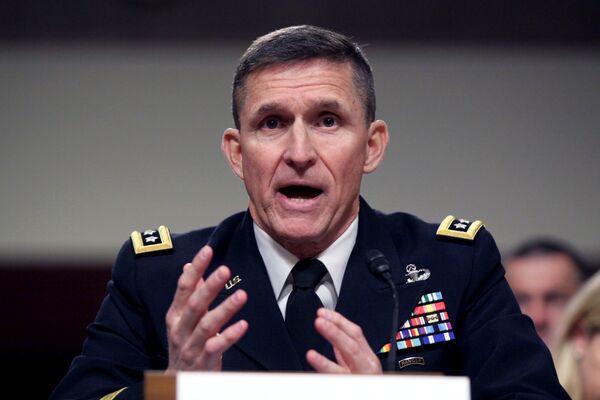
Vzglyad noted that Flynn, if appointed, probably wouldn't revert to any drastic or emotion-driven changes, like Giuliani, "but would be likely to refocus the agency toward different objectives. Flynn, as in the good old days of the Cold War, will be interested primarily in the practical, military component of intelligence collection."
"The CIA, despite its inertia, would gradually shift toward the collection of 'technical' information – the number of troops, tactical and technical information regarding weapons systems, the dislocation of military formations and command posts, and other things of the sort collected by other intelligence services of the world in a routine manner. Political and strategic intelligence is not Flynn's profession."
Ultimately, both candidates appear to be a threat to the CIA establishment, according to Vzglyad. "A reduction in funding, [along with] the isolationist theme of the new administration will complete the picture of an agency in decline."
However, a change in CIA guidelines could also prove very useful in the long term. "An updated CIA will almost certainly strengthen its work in Latin America…Support for Israel will be strengthened, which can have mixed long-term consequences. Work will inevitably intensify on China and Japan (Tokyo, incidentally, has long ceased to be regarded as an a priori true ally of the United States)."
In any case, hostility to Trump as an outsider and non-ideologue will be likely to create instability, although the agency's daily work will continue. "CIA stations will continue to work as they have, so long as they do not get tangled up by new instructions and circumstances. It's necessary to understand that the activity of the CIA is extremely bureaucratic…At the mundane level, the system operates autonomously, and fails only when instructions and ideological postulates contradict one another."
"The bottom line," the newspaper noted, "is that even just the replacement of top officials at the top of the CIA, the NSA and the military will lead to a temporary reduction in their external activity, given the severe internal conflicts and infighting that will arise. All of this will of course require paying close attention and collecting the facts. But it is already clear that this kind of shakeup is one the intelligence community has not faced even in principle."

